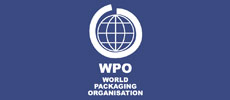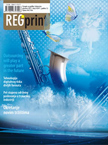«
Back to content
Vol 4 | Year 2017
Karl-H. Foerster, Executive Director, PlasticsEurope, Belgium
Karl-H. Foerster: Marine litter is top priority for european plastics industry
PlasticsEurope is one of the leading European trade associations with centres in Brussels, Frankfurt, London, Madrid, Milan and Paris. The organization is networking with European and national plastics associations and has more than 100 member companies, producing over 90% of all polymers across the EU 28 member states plus Norway, Switzerland and Turkey. More than 1.5 million people are working in approximately 60,000 companies (mainly small and medium sized companies in the converting sector)
 PlasticsEurope has a governing body called the General Assembly made up of its members. A Steering Board guides the Executive Director and Leadership Team on strategy, budget and policy. The Leadership Team is the operational centre of the organisation. This team consists of an Executive Director, Functional Directors and Regional Directors. Karl-H. Foerster has been the Executive Director of PlasticsEurope since 2013. With more than 30 years of working experience Foerster has been working in chemical and plastic industry in ten countries in Europe, Asia and North America.
PlasticsEurope has a governing body called the General Assembly made up of its members. A Steering Board guides the Executive Director and Leadership Team on strategy, budget and policy. The Leadership Team is the operational centre of the organisation. This team consists of an Executive Director, Functional Directors and Regional Directors. Karl-H. Foerster has been the Executive Director of PlasticsEurope since 2013. With more than 30 years of working experience Foerster has been working in chemical and plastic industry in ten countries in Europe, Asia and North America.Could you please introduce PlasticsEurope to our readers? What is its mission and what are its goals?
PlasticsEurope is one of the leading European trade associations with centres in Brussels, Frankfurt, London, Madrid, Milan and Paris. The association is networking with European and national plastics associations and has more than 100 member companies, producing over 90 % of all polymers across the EU28 member states plus Norway, Switzerland and Turkey.
PlasticsEurope promotes the positive contributions of plastics by: highlighting the material’s beneficial properties and its positive contributions to society throughout its life cycle; providing society with educational information to help raise awareness and correct misconceptions; liaising with European and national institutions in policy matters to secure decisions based on accurate information; communicating plastics contribution to sustainable development, innovation and quality of life and initiating in-depth studies and sharing experiences.
What were your significant activities during 2017?
During 2017 we organized IdentiPlast 2017, an international event on recycling and energy recovery of plastics. The event focused on how countries in Central and Southeast Europe can best benefit from the latest experience in Europe and in other parts of the world (particularly in US, Japan and Turkey) to improve their own waste management practices and infrastructure. We also contributed to the debate on how to shape the strategy on plastics which is about to be released by the Commission, by publishing our views, providing waste data and participating in dedicated workshops. Furthermore, we organised several workshops on eco-design with plastics between policy makers, the scientific community and key industry player and a conference on “Innovation with Plastics for a circular and resource efficient Europe” to serve as a platform to discuss and engage in a dialogue with key stakeholders: NGOs, scientific community, policy makers, plastics value chain, among others. We also organized the European Youth Debating Competition, a joint project with the European Petrochemical Association (EPCA) to promote education in Science, Technology, Engineering and Mathematics (STEM).
As an association present on European market by cooperating with many national plastics associations, what is your opinion on using plastics as packaging material in Europe?
Plastic packaging plays a major role in the prevention of food waste. We need huge amounts of natural resources for the production of food. We are wasting between 30 % and 40 % of the food produced. This is a key global challenge. To give you an example, an unwrapped cucumber loses moisture and becomes dull and unsaleable within 3 days. With only 1.5 grams of wrapping plastic we can keep a cucumber fresh for 14 days which means we are protecting and maintaining perishable food for longer.
A study of Denkstatt has shown that replacing plastics by alternative materials in packaging would lead to an increase in energy consumption and GHG emissions during the whole life-cycle of the packed product. This would be respectively multiplied by 2,2 and 2,7.
Do you think EU directives are enough when discussing protecting the environment? Are the national governments aware of the impact plastics has on the environment?
EU strategies and directives can help to move in the right direction. For instance, we have been calling for an end to the landfilling of all recyclable and other recoverable post-consumer waste by 2025. Seven EU Member States plus Norway and Switzerland introduced landfill bans applicable to plastic waste. The experience of these nine EU countries that already recover over 90 % of their post-consumer plastics waste demonstrate that whilst it is ambitious, this is not an unrealistic goal. In fact, the observation of the plastic waste management data in the last decade shows that the reduction of landfilling has increased recycling targets. The challenge is to put the right economic and political incentives in place in other Member States.
Over and above regulation, however, is the importance of educating citizens that plastics are too valuable to be thrown away, this together with an adequate infrastructure and the consideration of the full life cycle of a product will ensure that we move towards a more circular economy.
One of the most important EU strategies would definitely be the one about circular economy. Do you think EU members have what it takes to implement such comprehensive strategy?
If we want a more resource-efficient society, we should not bury our waste in landfills. Instead, plastics waste should be used as a resource through mechanical recycling, chemical recycling to obtain new feedstock, or energy recovery to generate electricity or heat. Burying valuable resources after their use phase is not resource-efficient.
To this aim, financial support provided by the Commission to the Member-States, as well as an exchange of best practices between Member-states (e.g. through the Circular Economy Platform) are important tools to help all Member States reach comparable levels of performance in circularity.
There are more and more plastic bags bans and customers are being educated on the negative effects they have. Can we expect a drastic reduction of plastic bags use?
PlasticsEurope had welcomed and supported the imposition of a fee not only on lightweight plastics carrier bags, but also on all other carrier bags, irrespective of the material, simply because they are way too valuable to be distributed for free. Charging a fee for carrier bags raise consumers’ awareness as to the economic value of the resources used to produce a bag.
The ban of a product, whatever the material, will not solve the causes of environmental pollution and marine litter, while responsible human behaviour, proper waste management systems and landfill restrictions prove they do.
Unwrapped cucumber loses moisture and becomes dull and unsaleable within 3 days but with only 1.5 grams of wrapping plastic we can keep a cucumber fresh for 14 days
Education is a big step in this ‘green’ journey. In your opinion, how can customers be more educated? Are more people recycling today or less?Plastics are simply too valuable to be thrown away. Surveys usually show that citizens are keen to participate in improving recycling but that they can be confused by unclear or diverse collection instructions. To help consumers to dispose each type of waste in the correct bin, collection instruction should be clear and systems should be made as simple as possible. We want to increase packaging recycling thus PlasticsEurope is calling for the separate collection of all packaging.
Considering all the above, do you think we can reduce plastic use in Europe?
Considering the huge benefits of plastics when looking at resource efficiency from a life cycle perspective, the aim should rather be to make sure that plastic products end up in the most sustainable waste management solution at their end of life. Today we face unprecedented challenges such as the lack of natural resources, climate change or food waste for example. Plastics are and will continue to be part of the solution.
Nowadays there is a lot of discussion about bio-degradability. What are the biggest challenges for European market to adopt bio-degradability of packaging materials?
It is important to understand that bio-based plastics are not biodegradable per se and that biodegradable plastics are not necessarily bio-based but can also be fossil-based (e.g. biodegradable polyesters). Both biodegradable and non-biodegradable plastics should be properly disposed of and must not end up in landfills. We need to understand that, if discarded in the environment, biodegradable plastics will not biodegrade or disappear contrary to popular belief. In order to do so, they must be properly recovered and composted in industrial composting facilities.
The subject of preventing food waste is very hot topic today. How can using plastic materials help with prevention of food waste?
Plastic packaging plays a key role in preventing food waste. Plastic packaging not only allows the transportation of food but protects food from external factors (e.g. shock absorption) and most importantly, it also increases the shelf-life of the packed food. According to the European Commission, nearly 90 million tonnes of food are wasted annually in the EU, this is equivalent to about 150 billion euros. Today, we face many global environmental challenges, including the lack of resources, especially in the EU. The fact that we are still wasting food means we are wasting limited natural resources.
What is PlasticsEurope’s position on bioplastics, especially when considering their lifecycle impacts?
Bioplastics have a role to play within the circular economy, just as conventional plastics do. However, we need to understand that there is no one solution that fits all. As mentioned before, biodegradable plastics are developed for specific applications which offer certain types of advantages.
Plastic waste should be used as a resource through mechanical recycling, chemical recycling to obtain new feedstock, or energy recovery to generate electricity or heat
What challenges do you think the industry will face in the next five years regarding plastics and its environmental impact?
Marine litter is a serious environmental challenge and a top priority for the European plastics industry and its global partners. The fact that littering is the result of irresponsible behaviour and poor waste management makes it essential to increase awareness of marine litter and its impact on marine ecosystems globally. This is a global problem that requires a global solution. Our priority is to stop polluting the land, rivers and oceans.
We initiated two major global platforms: The World Plastics Council (WPC) and the Global Plastics Alliance (GPA). In 2014, industry leaders launched the WPC, a platform for cooperation between key industry leaders to tackle marine litter and promote efficient waste management practices across the globe. In 2011 leaders from the world’s plastics associations signed The Declaration of the Global Plastics Associations for Solutions on Marine Litter, a public commitment aimed at contributing to real solutions to marine litter. This commitment focuses on education, public policy, best practices, plastics recycling and recovery, plastics pellet containment, and research. Today, 70 plastics associations in 35 countries have signed the Global Declaration and more than 260 projects have been completed or are in progress in various parts of the world.
This year is coming to an end and I believe you have planned most of your activities for 2018. Could you tell us a little about it?
Certainly the main event will be PolyTalk 2018, which will focus on marine litter and how we can build bridges and share best practices in the Mediterranean region and around the world. It is a forum to engage with key stakeholders in a forward looking dialogue; to meet new challenges and opportunities and act as a catalyst for concrete action on key issues. We will also organise the third edition of the European Youth Debating Competition, we will continue pushing for the implementation of Operation Clean Sweep, an international program designed to prevent and help keep plastic litter materials out of the marine environment and these just to mention but a few activities for 2018.
Interview by: Ivana Bjelica
















